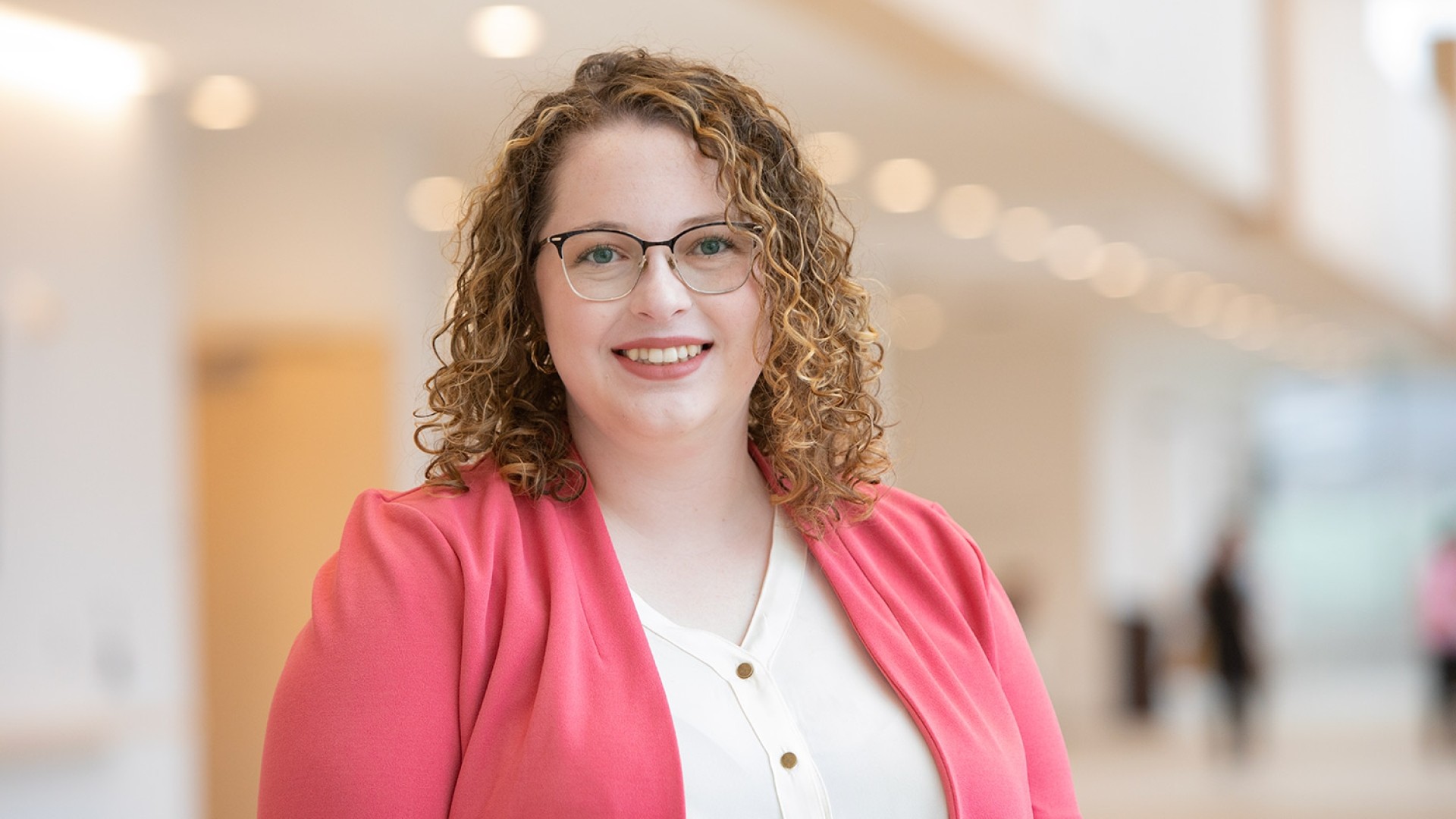
“The major thing that excites me about this research is how much we can learn from medieval physicians and their understanding of fertility/infertility. Much of our modern understandings and beliefs are derived from medieval medicine and as such, by examining the medieval understanding we can better understand our modern ones.” ~ Hannah James
Conceptions around fertility and infertility in the Middle Ages
Meet StFX health student Hannah James
Hannah James, a fourth year honours Bachelor of Arts and Science in Health student from Quispamsis, NB, has at StFX found a passion for the history of health. This year, she is working on research examining the conceptions of fertility and infertility during the Middle Ages, as discussed within medieval medical texts to help inform modern health care. Following StFX, Ms. James has been accepted into and will start a Master’s of Public Health at Queen’s University.
Tell me about your research?
I am examining the conceptions of fertility and infertility during the Middle Ages, as discussed within medieval medical texts. Additionally, I am looking at whether the traditions around fertility within medieval Arabic medical texts were integrated into the Latin medical texts. For the research, I read and analyzed three medieval medical texts to extract passages that discussed fertility and infertility very broadly. Once I examined these passages, I tried to group them based on theme and find any similarities between them. The results demonstrated that there was a continuous Latin tradition around infertility, something that goes against the commonly accepted beliefs around the integration of Arabic medicine into Western societies.
How did you get involved?
As a health student, we are encouraged to take a wide range of courses and as part of my health humanities, I took a class called Plagues and Peoples. This was the first health history class and it was really the place where I found my passion for the history of health. This was where I met (history professor) Dr. Donna Trembinski and first got to talk with her about the importance of studying this field. Then over the next couple semesters I took some more history courses and eventually decided that I wanted to do the (health) honours program. I then contacted Dr. Donna Trembinski asking about the opportunity for her to supervise me for my honours research. She agreed and then we started talking about potential topics, eventually landing on fertility and infertility because of my interest in women’s health specifically.
What excites you about it?
The major thing that excites me about this research is how much we can learn from medieval physicians and their understanding of fertility/infertility. Much of our modern understandings and beliefs are derived from medieval medicine and as such, by examining the medieval understanding we can better understand our modern ones. For example, a lot of the old wives’ tales around determining gender were once legitimate way for medieval physicians to determine a fetus’ gender before birth. By examining these conceptions, we have a better idea how and where they develop, thus providing important cultural information.
Could you tell me about the impact you hope the research will have or has had?
Since so many of the modern conceptions and beliefs around infertility have roots in medieval medicine, a better understanding of them can be really important for providing culturally-sensitive healthcare, especially since fertility is an area where culture and religion can have a significant impact on an individual’s beliefs. I hope that providing explanations around some of the medieval beliefs will give healthcare practitioners access to that really important information, thus allowing them to provide better care.
What has this opportunity meant to you?
I am beyond grateful to Dr. Trembinski and the Health Department for providing me with this opportunity to conduct this research. As an undergraduate student, there is not often an opportunity for us to conduct our own research project, but this project has given me that. I truly believe that the skills that I gained during the project will serve me throughout the rest of my life.
Could you tell me about any involvement/accomplishments at StFX?
I am the senior community advisor for Bishops Hall and spent two years as a community advisor throughout my degree. I also was the recipient of an Irving Oil Research Mentorship award.
What do you plan to do following StFX?
I am taking a Master’s of Public Health at Queen’s University and hope to be able to work within government or community-based organizations to improve the health of individuals by focusing on the social determinants of health. Specifically, I hope to work within the public school system to provide programming and education around mental health and resiliency amongst children and youth.

